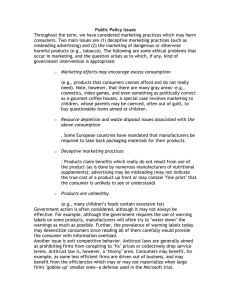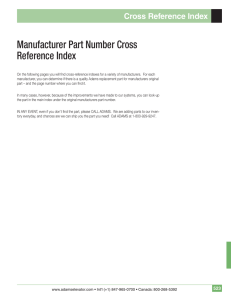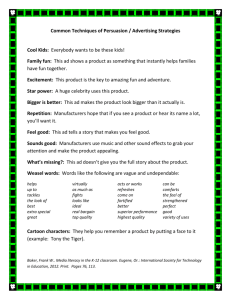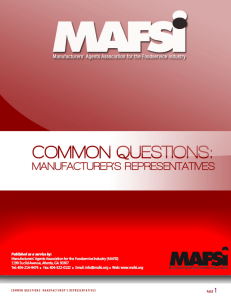what is a manufacturers` representative?
advertisement
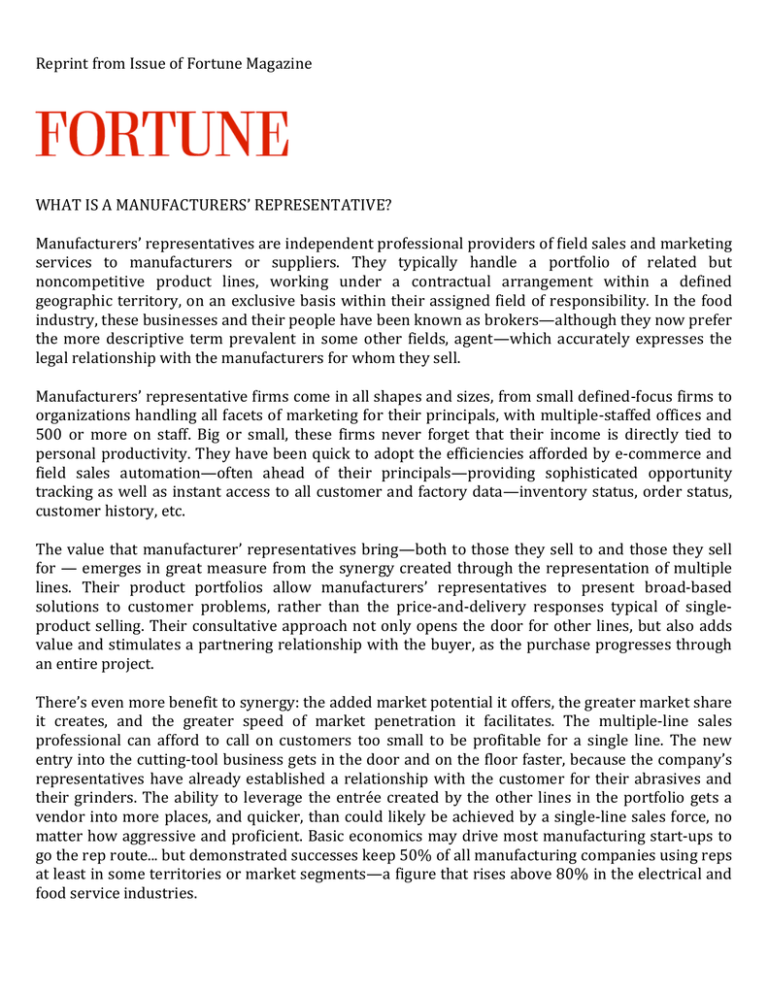
Reprint from Issue of Fortune Magazine WHAT IS A MANUFACTURERS’ REPRESENTATIVE? Manufacturers’ representatives are independent professional providers of field sales and marketing services to manufacturers or suppliers. They typically handle a portfolio of related but noncompetitive product lines, working under a contractual arrangement within a defined geographic territory, on an exclusive basis within their assigned field of responsibility. In the food industry, these businesses and their people have been known as brokers—although they now prefer the more descriptive term prevalent in some other fields, agent—which accurately expresses the legal relationship with the manufacturers for whom they sell. Manufacturers’ representative firms come in all shapes and sizes, from small defined-­‐focus firms to organizations handling all facets of marketing for their principals, with multiple-­‐staffed offices and 500 or more on staff. Big or small, these firms never forget that their income is directly tied to personal productivity. They have been quick to adopt the efficiencies afforded by e-­‐commerce and field sales automation—often ahead of their principals—providing sophisticated opportunity tracking as well as instant access to all customer and factory data—inventory status, order status, customer history, etc. The value that manufacturer’ representatives bring—both to those they sell to and those they sell for — emerges in great measure from the synergy created through the representation of multiple lines. Their product portfolios allow manufacturers’ representatives to present broad-­‐based solutions to customer problems, rather than the price-­‐and-­‐delivery responses typical of single-­‐ product selling. Their consultative approach not only opens the door for other lines, but also adds value and stimulates a partnering relationship with the buyer, as the purchase progresses through an entire project. There’s even more benefit to synergy: the added market potential it offers, the greater market share it creates, and the greater speed of market penetration it facilitates. The multiple-­‐line sales professional can afford to call on customers too small to be profitable for a single line. The new entry into the cutting-­‐tool business gets in the door and on the floor faster, because the company’s representatives have already established a relationship with the customer for their abrasives and their grinders. The ability to leverage the entrée created by the other lines in the portfolio gets a vendor into more places, and quicker, than could likely be achieved by a single-­‐line sales force, no matter how aggressive and proficient. Basic economics may drive most manufacturing start-­‐ups to go the rep route... but demonstrated successes keep 50% of all manufacturing companies using reps at least in some territories or market segments—a figure that rises above 80% in the electrical and food service industries.
